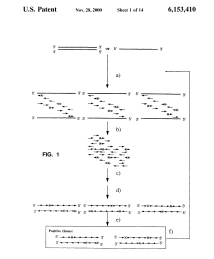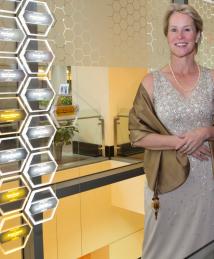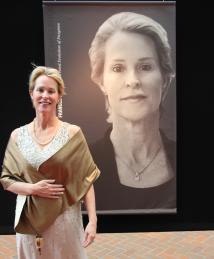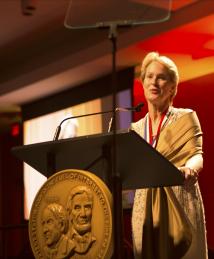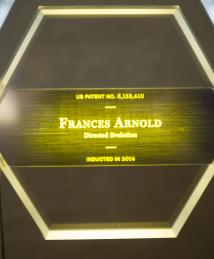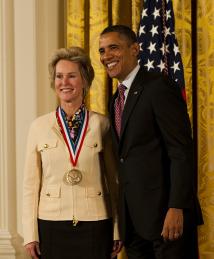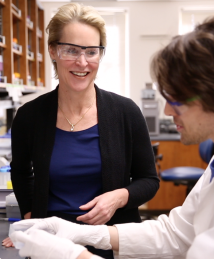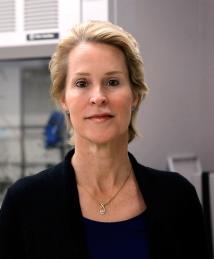Frances Arnold
"I didn't want to fit into someone's box. I wanted to explore all the boxes."
Frances Arnold pioneered the directed evolution of enzymes. Her process for developing useful proteins, which involved mutating and recombining their DNA sequences and screening for desired properties, sparked the development of evolution-based approaches to biomolecular engineering and made a transformative impact across many industries.
Born in Pittsburgh in 1956, Arnold has described herself as “a born engineer.” She has said that her father, a nuclear physicist, and mother ensured that their family life was “imbued with physics and mathematics.”
A drive for independence and adventure also has shaped Arnold’s life since her youth. From leaving her parents’ home while she was still in high school to moving to Italy at age 19, she said she was never afraid to do things on her own. “I wanted to see the world,” she explained. “Curiosity and a sense of adventure drove me, but a lack of fear was also important.”
Arnold earned acceptance into Princeton University at a time when few women studied there. She earned her bachelor’s degree in mechanical and aerospace engineering in 1979 and then enrolled at the University of California, Berkeley, where she received her doctorate in chemical engineering in 1985 and did postdoctoral work in biophysical chemistry.
Joining the chemical engineering faculty at the California Institute of Technology (Caltech) in 1986, Arnold began the work that would lead to a paradigm shift in bioengineering. She applied principles of genetic change and selection to accelerate the evolution of proteins, especially enzyme catalysts, in the laboratory.
“I love enzymes,” Arnold said in an interview with the National Inventors Hall of Fame®. “Enzymes catalyze reactions. They’re the best catalyst that you can find on this planet. Four billion years of trial and error and evolution created a spectacular set of catalysts.”
In the early 1990s, Arnold conducted the first directed evolution of enzymes. Because enzymes evolved in the laboratory have capabilities beyond those found in nature, the results of Arnold’s work could be applied to solve an array of chemical problems, including developing new biological routes to making pharmaceuticals, industrial chemicals, consumer chemicals and biofuels. With practical applications as varied as creating laundry detergents and developing new drugs, Arnold’s methods now are used in hundreds of academic and industrial labs around the world.
Arnold co-founded biofuel company Gevo Inc. in 2005, the crop protection company Provivi Inc. in 2014, and Aralez Bio to manufacture pharma precursors in 2019. She is currently the Linus Pauling Professor of Chemical Engineering, Bioengineering and Biochemistry at Caltech, where she focuses primarily on renewable energy and sustainable chemistry. “I think there’s a huge satisfaction to coming up with solutions to problems, and especially to problems that really make a difference in people’s lives,” Arnold said. “I can’t imagine a more satisfying career than that.”
In 2011, Arnold was awarded the National Medal of Technology and Innovation. She also became the first woman to win the Draper Prize in Engineering in 2011 and the first woman awarded the Millenium Technology Prize in 2016. In 2018, she became the first American woman to be awarded the Nobel Prize in Chemistry. She is also a member of the National Academies of Sciences, Engineering and Medicine, and she holds more than 60 U.S. patents.
Looking ahead to new possibilities in science, Arnold said, “I’m particularly excited about using nature’s chemists, the enzymes, to make what we need in our daily lives: to diagnose and cure diseases, to monitor the brain, to make renewable fuels and chemicals. I see a future where we can encode almost all of chemistry in DNA and use enzymes to make nearly everything we currently make with dirty and wasteful chemistry.”
For the next generation of creators and innovators, Arnold offers not only an inspiring example of where an independent, adventurous spirit might lead, but also a valuable piece of advice: “If you've got a good idea, follow it even when others say it's not.”
